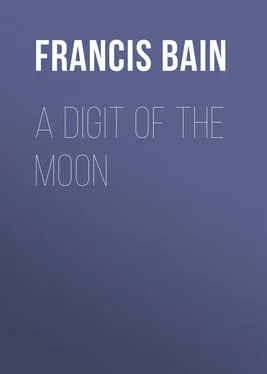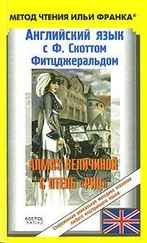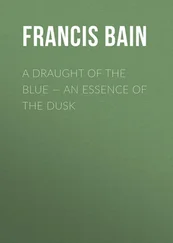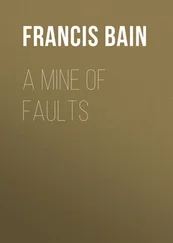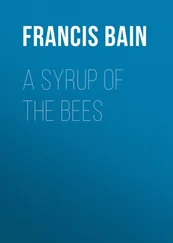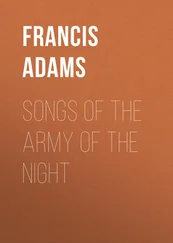Francis Bain - A Digit of the Moon
Здесь есть возможность читать онлайн «Francis Bain - A Digit of the Moon» — ознакомительный отрывок электронной книги совершенно бесплатно, а после прочтения отрывка купить полную версию. В некоторых случаях можно слушать аудио, скачать через торрент в формате fb2 и присутствует краткое содержание. Жанр: foreign_antique, foreign_prose, на английском языке. Описание произведения, (предисловие) а так же отзывы посетителей доступны на портале библиотеки ЛибКат.
- Название:A Digit of the Moon
- Автор:
- Жанр:
- Год:неизвестен
- ISBN:нет данных
- Рейтинг книги:4 / 5. Голосов: 1
-
Избранное:Добавить в избранное
- Отзывы:
-
Ваша оценка:
- 80
- 1
- 2
- 3
- 4
- 5
A Digit of the Moon: краткое содержание, описание и аннотация
Предлагаем к чтению аннотацию, описание, краткое содержание или предисловие (зависит от того, что написал сам автор книги «A Digit of the Moon»). Если вы не нашли необходимую информацию о книге — напишите в комментариях, мы постараемся отыскать её.
A Digit of the Moon — читать онлайн ознакомительный отрывок
Ниже представлен текст книги, разбитый по страницам. Система сохранения места последней прочитанной страницы, позволяет с удобством читать онлайн бесплатно книгу «A Digit of the Moon», без необходимости каждый раз заново искать на чём Вы остановились. Поставьте закладку, и сможете в любой момент перейти на страницу, на которой закончили чтение.
Интервал:
Закладка:
Lady, once upon a time there lived, in the country of a king called Dharmásana 38 38 i. e. 'seat of justice.' The meaning is important, as the sequel shows. It does the Princess credit that she notes and remembers it.
, an old Brahman who had three sons. And he possessed nothing in the world but nineteen cows. And when he was about to die, he called his sons around him, and said to them: My sons, I am in the mouth of death, therefore listen attentively to what I am going to say. All that I have to give you is these cows. Divide them amongst you; and let the eldest of you take half of them; and the next, a quarter of them; and the youngest, a fifth part of them. But if there should be any remainder left over, you must all three of you eat it; if not, all the cows are to be given to the King, and my curse will rest upon you, for disobedience to my last wishes. And having said this, that old Brahman died. And his sons performed his obsequies, and burned him in accordance with the rites.
Конец ознакомительного фрагмента.
Текст предоставлен ООО «ЛитРес».
Прочитайте эту книгу целиком, купив полную легальную версию на ЛитРес.
Безопасно оплатить книгу можно банковской картой Visa, MasterCard, Maestro, со счета мобильного телефона, с платежного терминала, в салоне МТС или Связной, через PayPal, WebMoney, Яндекс.Деньги, QIWI Кошелек, бонусными картами или другим удобным Вам способом.
1
The last lines contain recondite philosophical allusions to the Creation, Preservation, and Destruction of the World, and other matters, in technical terms which defy translation. Life in Hindoo philosophy, as in that of the Middle Ages, carries about with it a perfume of death: there is in its atmosphere something melancholy, and even a little morbid, like the slow tolling of a bell.
2
Sansára-ságara-manthanam .
3
For milk the author has substituted a technical word which means the world considered as the scene of never-ending transmigrations . (' O world! O life! O time! ') By this he implies that the nectar of his work it the residuum of much churning of life and experience of the world, and that it is destined to be immortal.
4
I have never experienced a stranger or more delightful sensation than when, as I was translating this work, I saw this very phenomenon on the Ghauts at Mahábaleshwar: a blood-red Moon going down into the hills at early dawn, with the Sun rising on the opposite peaks. Only the redness which the poet ascribes to the Sun was of course due to the haze of the atmosphere.
5
Though I make no attempt to assign a date to this MS., the reader should observe that in India printing has not superseded hand work. The Hindoos have religious prejudices against printed books, and they will not use them in their temples, or for sacred purposes.
6
A well written MS. in the Déwanágari character, is hardly if at all, inferior to print.
7
At some future time I hope to translate the remainder, or part of it.
8
Its principal beauty lies in the skill of its climax, which is lost by neglecting the order.
9
The poem is written in shlókas , or anushtubh , with occasional deviations (as e.g. the conclusion) into more elaborate metres.
10
Some such benedictory exordium as this is regarded as indispensable by every Sanskrit author: yet it is remarkable that Kálidás is careless of the rule; e. g. his Cloud and his Seasons begin at once without any invocation at all.
11
Shiwa.
12
Ganésha or Ganapati. See Day 1.
13
Saraswatí, the goddess of speech.
14
i. e. 'sun-beloved;' the name of a fabulous gem 'sunstone' (cp. 'moonstone'), said to possess magical properties and exhibit them when acted upon by the rays of the sun.
15
Ten millions.
16
A kind of play on the King's name: lóhakánta means a loadstone.
17
This method of bringing lovers together is part of a Hindoo story-teller's romantic machinery.
18
The Hindoo Cupid, who is said to possess five bewildering weapons.
19
Alluding to the King's name: see n. p. 1. 11 i. e. 'the passion, or the rosy-blush, of love.' (Pronounce the two first syllables to rhyme with 'among,' with a north-country g.)
20
These Nagas are beings of serpent nature, but often confounded with men: e. g. in Kathá Saritságara, I. 6, the nephew of the King of the Nágas is said to be a Brahman. Their women are of inconceivable loveliness.
21
Very few of the stories are really riddles, but they all give the Princess an opportunity of displaying her ready judgment and acumen. It will also be seen, that owing to the device with which the story concludes, there are really only nineteen days, instead of twenty-one.
22
Pronounce Russakósh . The name refers to the part he will play in the story: it means both 'a ball of mercury,' and 'a treasury of taste, wit, literary sentiments or flavours,' a sort of walking encyclopædia. The King's companion is a salient figure in Hindoo drama: he is a sort of Sancho Panza, minus the vulgarity and the humour.
23
This colloquialism is an exact facsimile of the Sanskrit expression.
24
A play upon his own name.
25
Ganésha, the god of obstacles and success. See Day 1.
26
An old name for Bhíls and other wild tribes.
27
'A tree with orange-coloured fragrant blossoms.'
28
The Hindoo Vulcan, sometimes, as here, used for the Creator, dhatri = Plato's [Greek: demiourgos]. Sanskrit literature is the key to Plato; much of his philosophy is only the moonlike reflection of Hindoo mythology.
29
Hindoo poets see a resemblance between rows of bees and eye-glances.
30
The Indian cuckoo. The crane is a by-word for inward villainy and sanctimonious exterior. The chakrawáka, or Brahmany drake, is fabled to pass the night sorrowing for the absence of his mate and she for him.
31
The very echo of Martial.
32
i. e. Rasakósha himself. The allusion is to a power, possessed by adepts in Yoga, of detaching the soul from the body. See Day 11.
33
The goddess of fortune and wealth, who was churned up out of the ocean, and according to some, appeared reclining on an open lotus. Coral is one of the nine gems.
34
i. e. an atheist. The opinions of this philosophical school may be found sketched in the Sarwa-Darshana-Sangraha, § 1.
Читать дальшеИнтервал:
Закладка:
Похожие книги на «A Digit of the Moon»
Представляем Вашему вниманию похожие книги на «A Digit of the Moon» списком для выбора. Мы отобрали схожую по названию и смыслу литературу в надежде предоставить читателям больше вариантов отыскать новые, интересные, ещё непрочитанные произведения.
Обсуждение, отзывы о книге «A Digit of the Moon» и просто собственные мнения читателей. Оставьте ваши комментарии, напишите, что Вы думаете о произведении, его смысле или главных героях. Укажите что конкретно понравилось, а что нет, и почему Вы так считаете.
